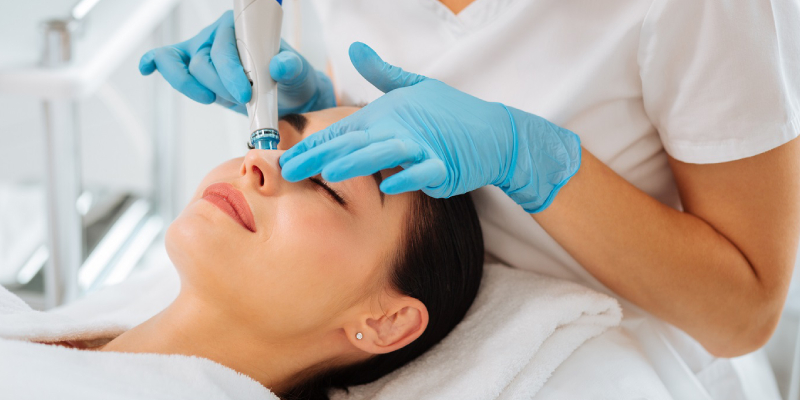If you are experiencing any kind of skin issue, you should fix an appointment and meet the dermatologist. He/she is also a medical expert but suggests treatment for skin problems. Dermatology is the medical term used for mentioning the treatment and diagnosis of nails, hair and skin diseases. Dermatology involves however not restricted to diagnosis, research, and study of cancers, cosmetics, skin disorders, and skin diseases and aging illnesses of the nails, hair, fat, skin and genital membranes. It included but not restricted to photodynamic therapy, laser therapy, phototherapy, radiotherapy, immunotherapy, dermatologic cosmetic surgery, dermatologic surgery, systemic and topical medications, and dermatohistopathology.
How many individuals get skin diseases?
One of the most visible and largest organs of the body is the skin. It showcases the body’s health status and serves as a barrier against bacteria and injury. Most everyone at one time or sometimes experience some kind of skin disease. The elderly, adults, teenagers, children and infants are prone to skin diseases. 15% of patients visiting a general physician or family doctor complain of skin issues.
What are the common skin disorders?
Some of the common skin disorders or diseases are as follows:
- Hand dermatitis is caused due to external contact of household chemicals and detergents. It affects mostly women belonging to young families.
- Acne is common among teenagers
- Psoriasis is a skin disorder that has affected almost 10,000 New Zealanders.
- Dermatitis
- Fungal infections
- Warts
- Skin cancer
- Atopic eczema affects one out of six children
- Cold sores or herpes simplex affects out of five individuals
More Info About : What It Takes To Be Dermatologist In India?
What are the duties and tasks of dermatologists?
Trained dermatologists perform various activities like treating patients in clinics, public hospitals or in private medical centers. They teach, act as consultants and indulge in basic or clinical research. The dermatologists should have sufficient experience and exposure in basic sciences like endocrinology, physiology, physics, biochemistry, pathology, and microbiology. He/she should be experienced with other medical specialties as skin diseases are mostly connected with internal conditions and due to their consultant work.
The dermatologist suggests skin surgery for several situations:
- Biopsy: To develop a convincing diagnosis
- To enhance the appearance of the skin due to discolorations, removing growths or damage because of sunlight, disease or aging
- To provide or prevent early symptoms of the disease like removing skin cancer

How to select a dermatologist?
At present, there are numerous dermatologists and it is hard to choose the one among many. All dermatologists are not equal. You need to do some research to find a dermatologist who works to solve your particular concerns and problems. If you are searching for an ideal dermatologist, you need to keep these guidelines in mind to shortlist the best in your locality.
Best credentials: Any physician with a medical degree can practice and treat dermatology conditions. When you notice certified physicians, they will hold extra years of specialized dermatology study and completed rigorous exams. So, you have to search online about the doctor’s credentials before fixing an appointment. Several doctors mention themselves, dermatologists, however, they would be general practitioners, internists or something else.
Go by referrals: Request your primary care physician to refer a dermatologist as per your medical status. If possible, you can also friends, healthcare providers, and family members for recommendations. Ensure to ask about the experience and credentials of the doctor. When you have a few dermatologist’s contact details, call the clinic and ask whether he/she is available for a new consultation. You can request the receptionist to fix a consultation or appointment to meet the dermatologist.
Unrushed appointments: Experienced dermatologists offer services without caring about the time and day. They will see your status and focus to hear your doubts, issues and personal stories. The dermatologists should be willing to spend sufficient time with you by explaining things, explaining treatment plans, addressing concerns and also the tests you may have to undergo in the future. If the dermatologist does not have time to listen to your thoughts and issues, it is hard to accept their treatment plans. It is best to neglect such dermatologists and book an appointment with someone who treats you more than a patient.
Sampling policy: Some dermatologists will not ask you to buy products instead, they share samples and ask to report the status after a week. They will write the medicine in the prescription-only if they find the sample ointments or medicines worked for you. If you are budget conscious, you can directly ask your dermatologist to give a sample product. They would usually have numerous sample products that mostly goes to trash because of non-usage or expired date.
Consider gender: As you have to discuss your personal information, it is best to see the gender of the dermatologist before consulting. Some people feel comfortable visiting doctors of their gender. This way, you can share your concerns and show the skin condition freely without any hesitation.






